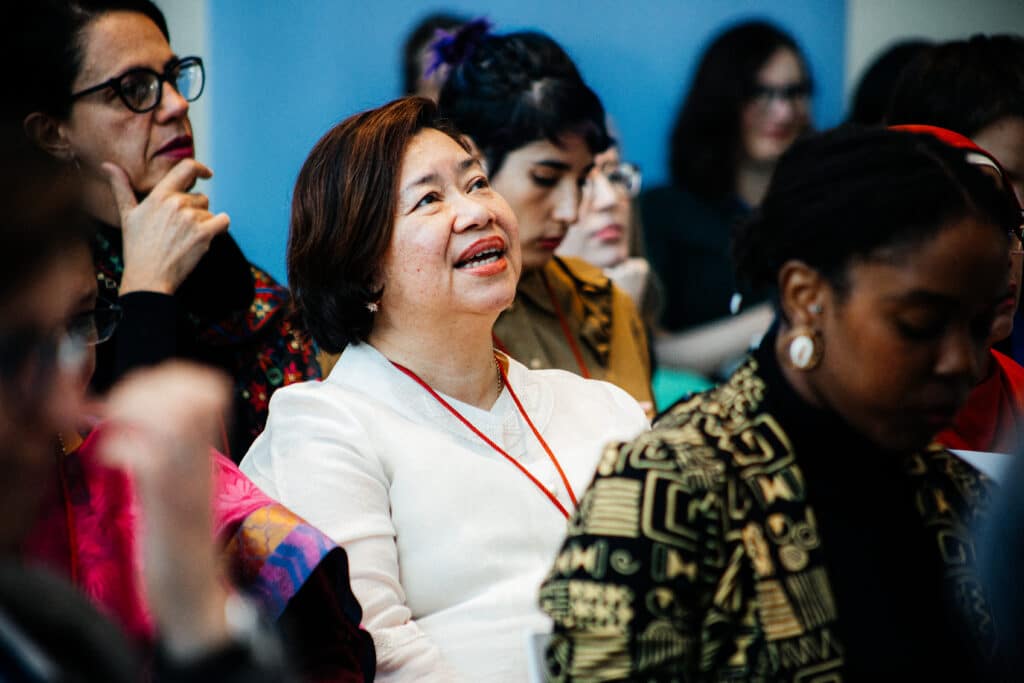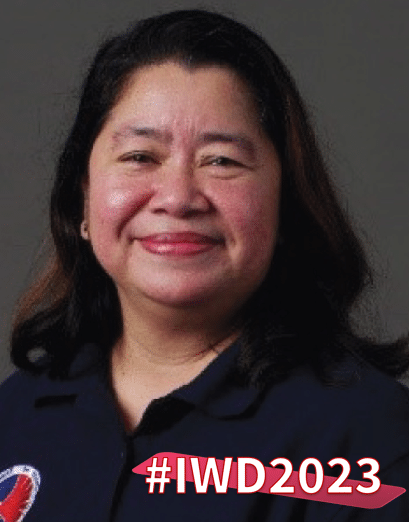
Published on 8 March 2023
In the frame of the International Women’s Day 2023, one of the remarkable mentors of the Women on the Move network, Dr. Sheilah, shared with us in a special interview her inspiring experience as a women leader in the transport sector.
This month is a great occasion to highlight women’s impact in different sectors of society. Transport has been one of the sectors where women have been working really hard to raise their voices and contribute from different perspectives. Dr. Sheilah is currently lecturer at the UP School of Urban and Regional Planning, Manila, the Philippines and was former Assistant Secretary for Planning and Project Development of the Department of Transportation (DOT). Her knowledge spans from research as well governmental implementation and enriches the discussions about transportation systems.
Additionally, she is a core member of Women in Transport Leadership (WiTL), a knowledge-sharing network aimed at empowering women and women leaders in transport in Australasia.
How can women impact the transport sector?
The transport sector has many spaces where women can take part nowadays, as users, workers, administrators, etc. and women can be change makers in all these areas. As users, women have to face so many situations, and we can use these experiences to work on the development and improvement of the transport sector.
Also as advocates, women have a huge impact because transport is so much more than what can be addressed by engineers and infrastructure. Women know what they are talking about and the needs they have to make transport more accessible as transport is about people. You could even say that transport needs a “care” component for the people, and this perspective is currently missing.
For example, a sidewalk is not only just a space for active mobility, but also the place for parents to carry their child in a safe purpose. Women have an impact because we have a conversation on how to improve the system which should serve the people.
Why is it important to promote women participation in research and development of the transport sector and the benefits?

To develop a sustainable system of transport, we all must understand the travel needs of all commuters as different groups of society. Women have different needs, but data about their mobility pattern are not enough. We need to work with them together. Including women in the development of the system is including the richness of their experience.
Bringing more women is bringing more perspectives from different fields and that is what the transport sector needs now, because the power of having a group of women advocating is huge and capable of creating the change that society needs in the transport sector.
I believe that if you have and implement the stories of women, the development of transportation becomes more powerful.
What are the obstacles that you have experienced as a woman in this sector?
One of the biggest obstacles for women is the system which doesn’t protect them in the first place. Then women also have to deal with internal challenges where they have to learn how to be confident.
For me it became an obstacle to not see many women in the beginning. I was intimidated.
In the Philippines context, the implementation still is very weak. The lack of recognition is a big obstacle in the transport sector, as women we must believe that we are able to contribute and not only focus on the outcomes but focus on the process as well.
The transport sector is doing a good process since researchers realized that transport is a multidisciplinary field. However, there still so many things to acknowledge and get a bigger picture to develop.
How would you motivate women who are currently working on this field?
The best way to motivate other women in the field is by showing them that work in transport has a deeper impact and is intended to turn transport systems into a platform for social equity. In addition, it is important to show them all the possible ways they can contribute as members of society.
Also, motivating and inspiring young women and showing that transport is much more than engineering are vital. It is important to include women of all ages. That is why mentoring programmes are so important. Being a feminist does not mean that women are better than men. But they deserve to be served better than they currently are and creating a system which supports women and their needs.
Nobody lives forever, but the fight can and will remain with the help of mentoring programmes. The fight for human rights, women’s rights, sustainable transport, must have an intergenerational approach.
In the network of Women on the Move, remarkable women like Dr. Sheilah, get in touch with women that are just starting to find their place in the transport sector. Mentors share their experiences with the next generation of champions. In this International Women’s Day, we want recognise the intense work of women all over the world, who work in a sector, which for many years was male dominated. Kudoz to their efforts to make these sectors accessible for everyone.
Dr. Shailah was also awarded as a Remarkable Feminist voice 2023 in the award ceremony after a productive study tour during the first week of March. The interview was conducted in the margins of this study tour.
 WomenMobilizeWomen "Remarkable Feminist Voices in Transport 2023" Award Ceremony on 2nd March 2023 at GIZ Repräsentanz Berlin © GIZ Germany
WomenMobilizeWomen "Remarkable Feminist Voices in Transport 2023" Award Ceremony on 2nd March 2023 at GIZ Repräsentanz Berlin © GIZ Germany